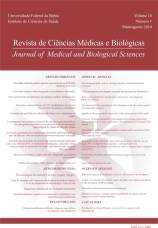Phytoestrongens the modulador selective receptor estrogen?
DOI:
https://doi.org/10.9771/cmbio.v10i1.4914Keywords:
Phytoestrogens, Menopause, Lipoproteins, SERMsAbstract
Flaxseed are particularly abundant source of phytoestrogens, are diphenolic compounds that are present in several plants eaten by human beings. When ingested in relatively large amounts, phytoestrogens have been shown to have significant estrogen agonists/ antagonists effects in animals and humans. There is epidemiological, laboratory and clinical evidence which indicates that phytoestrogens, like certain selective estrogen receptor modulators, have an antiproliferative effect on the breast, and positive effects on the lipoprotein profile and bone density. They might also improve some of the climacteric symptoms. This evidence is critically reviewed, and the possible benefit of dietary intervention with phytoestrogen-rich food for woman's health is discussed.Downloads
Download data is not yet available.
Downloads
Published
2011-11-03
How to Cite
Guerra, T. de R. B., Boaventura, G. T., & Velarde, L. G. C. (2011). Phytoestrongens the modulador selective receptor estrogen?. Journal of Medical and Biological Sciences, 10(1), 67–70. https://doi.org/10.9771/cmbio.v10i1.4914
Issue
Section
Review Articles
License
The Journal of Medical and Biological Sciences reserves all copyrights of published works, including translations, allowing, however, their subsequent reproduction as transcription, with proper citation of source, through the Creative Commons license. The periodical has free and free access.


